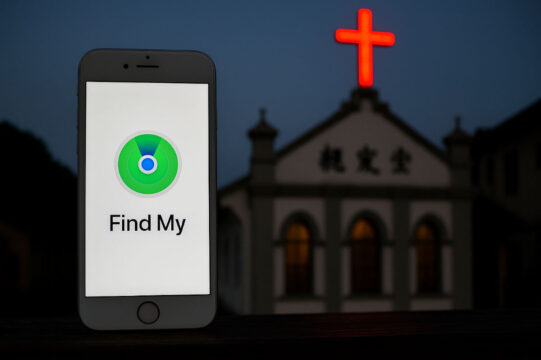The great iPhone rapture

It starts like any typical night out. You’re sipping something overpriced and half-listening to your friend’s relationship drama. Then, you check your pocket. Empty. You think maybe it was a pickpocket. But the reality is far stranger.
Dozens of iPhones stolen in cities like Washington, D.C., New York and Chicago have resurfaced thousands of miles away, deep inside religious communities in southern China. That’s the interesting part.
📍 A sinful trail
Folks whose iPhones were stolen are using Apple’s Find My app to track their phones’ travel across the world.
In one case, a man watched his iPhone move from a D.C. bar to Latin America, then Southeast Asia, and finally land in a building linked to a Chinese church. He had never heard of the town, let alone visited it.
Other people reported nearly identical patterns, with their phones pinging from the same region.
So how did stolen iPhones end up in churches on the other side of the globe?
✌️ Peace be with iOS
Turns out, there’s an entire international pipeline designed to launder locked iPhones. These phones are pretty useless in the United States without the original Apple ID credentials. But in the hands of skilled hackers or digital middlemen, they can be exploited.
And many, it appears, are routed through church groups in China, getting them as part of larger electronics shipments.
⛪️ So why churches?
It’s not just about slipping past customs. It’s about creating cover. Spiritual sanctuaries don’t exactly scream “criminal enterprise.”
In countries with heavy surveillance and strict internet controls, religious organizations can operate in legal gray zones, especially if they’re unofficial or underground.
That makes them the perfect fronts for quietly moving tech across borders.
Even if a stolen iPhone is locked and can’t make calls or be resold through normal channels, it’s still a powerful tool. The phone’s camera, microphone, offline apps and messaging can be used for discreet communication, organizing meetups, storing encrypted content or recording without drawing attention.
In the hands of the right people, that “worthless” locked phone becomes a digital Swiss Army knife, especially in places where free speech and movement are tightly controlled.
So, what started as a petty theft at happy hour might actually be fueling an underground digital resistance halfway across the world. Isn’t that fascinating? I thought so, too.